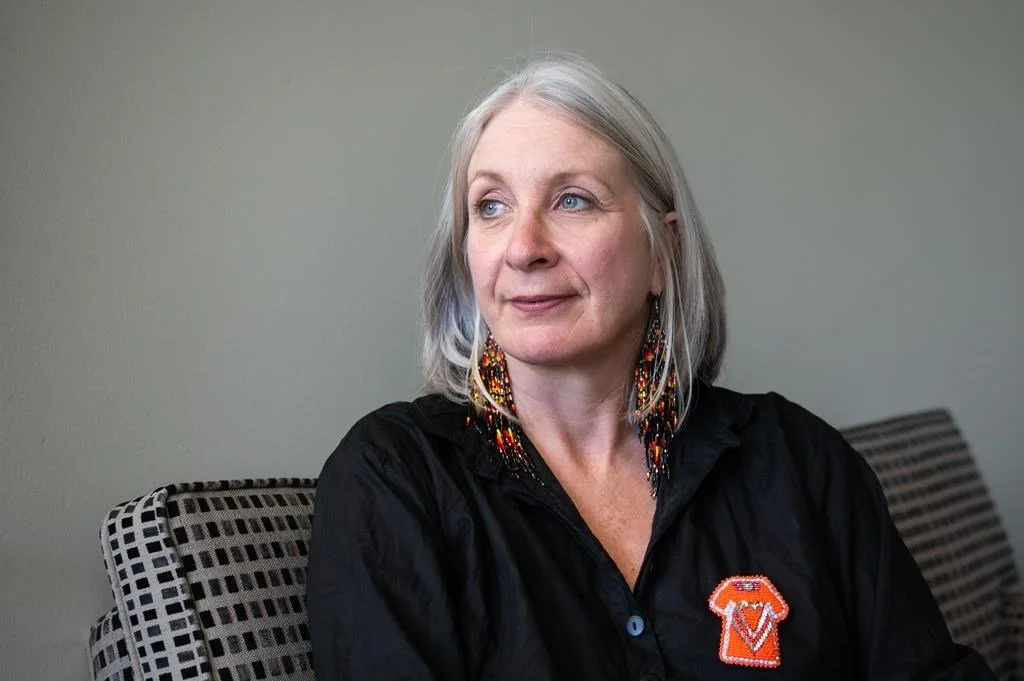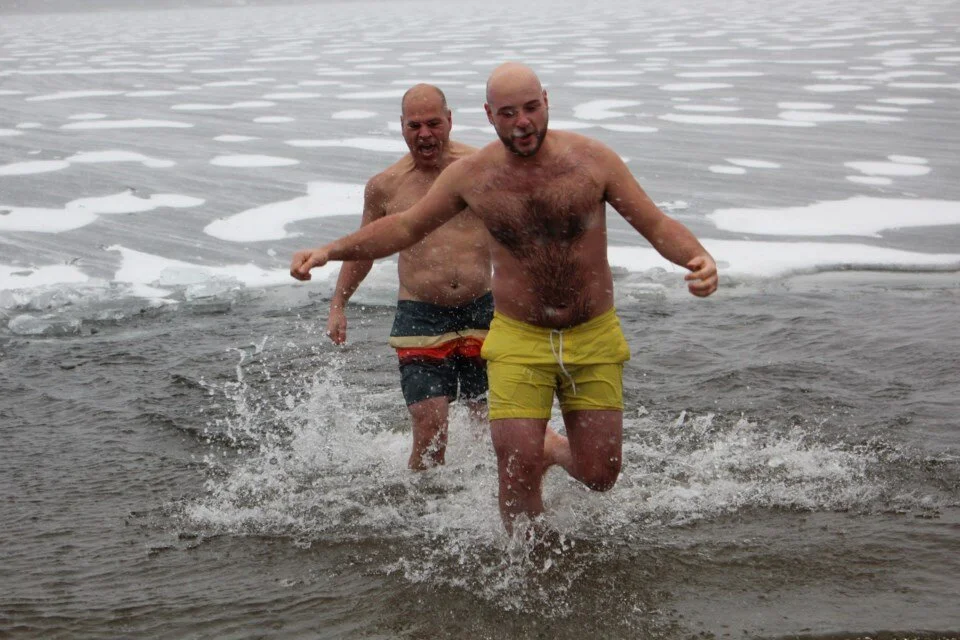A New Brunswick tourist destination is getting some help fixing its water supply. Fundy Albert, which includes Alma next to Fundy National Park, is getting $12 million to upgrade its aging water infrastructure. This comes after years of boil-water advisories in the community, including one that lasted from July to October.
Water issues need to be addressed across Canada
Last Thursday, I took part in the House of Commons Environment Committee hearings into Canada’s freshwater resources. Appearing before us were representatives from Health Canada, Indigenous Services Canada, Agriculture and Agri-Food Canada and Global Affairs Canada. As you can imagine, the issue of freshwater resources is an immense and complicated—but extraordinarily important—subject, so the conversation was lively and illuminating. Indigenous Services officials were, of course, asked why there were still 28 First Nations communities with boil-water advisories eight years after the government promised to fix the huge problem of neglect they found when taking office. Most of these problems go back much further than eight years. For example, the Neskantaga First Nation in Ontario has been on a boil water advisory since 1995. While some of these situations face jurisdictional and engineering challenges, we can all agree they would have been fixed much more quickly in non-indigenous communities.
Hiawatha First Nation ends 20 years of boil water advisories with new treatment plant
Two decades of boil water advisories are over for Hiawatha First Nation after the completion of the first phase of the community’s new water treatment plant and distribution system. A grand opening was held earlier this week for the new plant and system situation in the First Nation located 30 kilometres south of Peterborough. Chief Laurie Carr says the system is a symbol of change for the community which has long advocated for better long-term solutions for boil-water advisories across Canada.
What happened to Prime Minister Justin Trudeau’s most important relationship?
He promised to end boil-water advisories in First Nations communities within five years. He said constitutionally guaranteed rights of First Nations are a sacred obligation. "I know that renewing our relationship is an ambitious goal. But I am equally certain that it is one we can, and will, achieve if we work together," Trudeau told the Assembly of First Nations in December 2015.
For Ontario's most northern riding, there's a feeling of neglect that residents are looking to change
In one of Ontario's newest electoral ridings, residents hope whichever party forms the next provincial government will fix a longstanding sense of neglect and address a wide range of issues disproportionately felt in the far north. Kiiwetinoong — which means north in Ojibway — is the largest riding in Ontario by geographic area, but one of the smallest in terms of population. It was one of two new ridings created for the 2018 election, and the majority of the population is Indigenous.
Neskantaga First Nation's chief says residents don't support federal drinking water settlement
Residents of some First Nations affected by unsafe drinking water can now file claims under a settlement with the federal government, but the chief of one northwestern Ontario community says they don't support the arrangement. "I just want to say that I'm not in agreement with the settlement," said Roy Moonias, a member of Neskantaga First Nation, which has been under a drinking-water advisory for nearly three decades. "I heard the community say the same thing. They're not in agreement."
Engineering Panel Explores Solutions for Indigenous Communities Struggling to Access Clean Water
Clean, safe water is critical to human health, food production and more, yet access to this cherished resource remains a challenge for many Indigenous communities in Canada. Water advisories continue to be a common occurrence for these communities and an all-too-regular reminder of the different standards that exist in the country for public infrastructure. “More often than not, boil-water advisories are put on due to a lack of confidence in the system. Frequently, short-term ones are because there was a break in the line, the line depressurized and some contaminates may have been introduced into the distribution system,” explains Ryan Dunbar, president of SOAR Professional Services, a consulting firm focused on Indigenous employment and community development. The company was launched as a limited partnership with Dillon Consulting Limited.
'We are ecstatic': Scugog Island First Nation lifts 13-year drinking water advisory
A 13-year drinking water advisory has come to an end for those who reside on the Mississaugas of Scugog Island First Nation (MSIFN). With a new communal water system now operational, the Scugog Island First Nation announced Dec. 16 that it was lifting four boil-water advisories and that community members will finally be able to fill their glasses from a tap. The MSIFN experienced periodic boil-water advisories since the early 1990s, which eventually led to a permanent drinking water advisory in 2008. Since 2014, the Scugog Island First Nation has been steadily investing in the improvement of the community’s infrastructure needs to ensure all homes and businesses on Scugog Island have a reliable source of clean drinking water.
Federal government needs to up spending to give First Nations clean water, PBO says
The parliamentary budget officer says the federal government would need to increase planned spending to provide clean drinking water in First Nations. Yves Giroux’s report this morning says the government has set aside enough money to build water and wastewater systems over the next five years. Where the government falls short is to help First Nations operate the systems, which Giroux’s office estimates would need $138 million more annually in federal funding.
CANADA: Hajdu to seek input from Indigenous community before outlining ministry priorities
Hajdu said she won’t presume to rank priorities for Canada’s Indigenous people without first seeking out their input. That said, ending all boil-water advisories is near the top of her to-do list. “This is a huge priority and it has been for our government for a long time. In fact, since we were elected we’ve lifted over 100 boil-water advisories. There are about 44 left to do. I’ve just finished meeting with my deputy minister for the first time and I’ve reiterated this is a top priority for the government of Canada,” Hajdu said. “I’m really looking forward to understanding those continued long-term boil-water advisories better and meeting with those individual communities to hear their perspective on how we can more quickly accelerate this work.”
Canada’s new governor general, Mary Simon, is poised to engage in her most challenging diplomatic mission yet
It may be challenging for Canadians to wrap our heads around the concept of peoples living in this territory, with inherent rights (through their own treaties) to water and land that we do not possess, not wanting to be part of this country — and even seemingly undermining it by blocking major economic and industrial projects.
My Community’s Boil Water Advisory Is Almost as Old as Me
Lately, my home community has been on my mind as I recently read reports that the Canadian government had missed its own deadline to end all boil-water advisories on First Nations reserves. I imagined the extra pandemic risks that came with a lack of clean, safe water. I wanted to find out if there was anything being done about this clear violation of basic human rights.
Canada's Indigenous communities remain under boil-water advisories amid Covid-19
Dozens of indigenous communities across Canada have still no access to drinking water more than a year into the coronavirus outbreak as the country’s liberal government has officially failed to deliver on its own five-year deadline to lift all drinking water advisories in First Nations reserves. Canada’s Auditor General Karen Hogan presented a report in February documenting the total failure of successive Canadian governments -- including Justin Trudeau’s -- to provide for Indigenous communities’ most basic needs, insisting that “Access to safe drinking water is a basic human necessity,” according to the US-based World Socialist Web Site (WSWS).
What happened when Prime Minister Justin Trudeau visited this (virtual) class
It’s not every day that one of your virtual classmates is the prime minister of Canada. Just ask the students from Alison Palmer’s Grade 6 class at the Victoria School in Edmonton. When they attended class on Jan. 5, their virtual guest was none other than Prime Minister Justin Trudeau. But Trudeau wasn’t in the virtual class to learn about social studies, math or history. Instead, he spent an hour answering questions about his job and political promises.
Sudburians brave Nepahwin’s freezing water to raise awareness of First Nations water woes
For the past month, Greater Sudbury’s Jordan Cheff has been taking dips in the freezing waters of Lake Nepahwin. November and December might seem like an odd time to visit the beach, but it’s all part of Cheff’s initiative, Cold Water 4 Clean Water, which aims to raise awareness of the issue of FIrst Nations communities in Canada that are living without clean water. The issue has been in the news lately, as the federal government says it will not meet a marquee pledge by Prime Minister Justin Trudeau to lift all boil-water advisories in First Nations communities by March 2021.
NP View: That many First Nations still don’t have access to potable water is a stain on our national character
It is to our national shame that many First Nations communities still don’t have access to potable water. That we have known about the problem for decades and failed to address it is a stain on our national character — one that Justin Trudeau and his Liberals made a lot of hay about addressing during the 2015 election campaign. “A Canadian government led by me will address this as a top priority because it’s not right in a country like Canada. This has gone on for far too long,” Trudeau said at the time, pledging to end all boil-water advisories on reserves within five years.
New technologies may help handle cloudy water from Great Slave Lake
The Town of Hay River is awaiting a GNWT report – expected at any moment – that might offer guidance on how the community’s water treatment plant could be upgraded to handle turbidity in Great Slave Lake. Turbidity – better known as muddiness – has resulted in three boil-water advisories since spring break-up, and the latest was still in effect as of late last week.
Another Ontario First Nation declares a state of emergency over water
Eabametoong First Nation, an Ojibway community that sits about 360 kilometres north of Thunder Bay, passed a band council resolution declaring a state of emergency Friday after water test results showed levels of trihalomethanes (THMs) between 122 to 182 per cent above Health Canada safety standards.
Yesno said residents are also reporting a foul smell coming from the community's tap water.



















